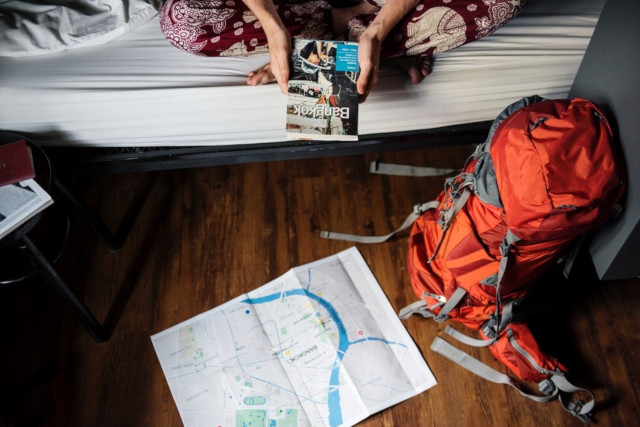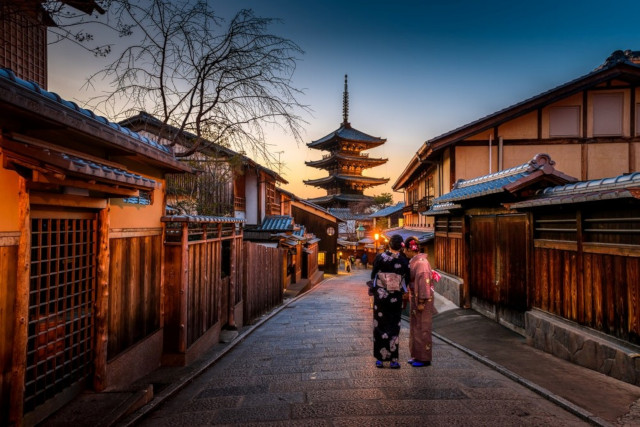Image Source: Unsplash
Traveling alone is a wonderful way to get a unique vision of a country, and Asia is no exception. However, when you are going alone, you need to be careful about finding the best places for solo trips, what to wear, how to budget, where to stay, and more. Solo travelers in Asia should bear these tips in mind.
1. Clothing and Culture
In many parts of Asia, both men and women commonly wear loose, flowing garments which cover most of their body. Although, as a visitor, you will not be expected to dress exactly like the locals, you should always be respectful to local customs. To enter most places of worship, as well as particular public buildings, women will have to cover their head, shoulders, and arms.
In countries where most of the women do not expose much flesh, you can expect to be stared at and receive comments from men if you walk about town with less clothing than the locals wear. Whether you are male or female, you may find it handy to bring a large lightweight shawl that can be draped or tied to cover any areas of your body when necessary.
For comfort, choose clothes crafted with natural fibers (such as cotton), as these will breathe better in hot climates. Take clothing items that can be layered for different weather conditions. For example, if you go hiking in the mountains, you can add layers as you go to be warm enough. Finally, take a versatile hat that can protect you from the sun on the beach and keep you warm in the mountains.
2. Money and Essentials
Carry sufficient cash (in small denomination bills) to cover day-to-day necessities. While cards can be used in most cities in Asia, you will need cash if you are going to be traveling off the beaten road.
Other essentials you should always bring are bug repellent, sunscreen, and a first aid kit. Remember to bring any prescription medicines you need, and some painkillers and anti-diarrhea tablets, just in case! Alcohol gel and baby wet wipes are essential for on-the-road sanitation before eating or after using the toilet.
A small knife and a lighter are reassuring to have, too. Don’t carry too many things in your backpack – before you leave, evaluate the necessity and versatility of each item. Lugging a large heavy pack around teeming bus terminals in sweltering heat is no fun. Try to travel light, and when you buy things along the way, consider sending them home instead of carrying them with you.
3. Communications and Cables
Remember to take adaptors to suit the different connections you might find on your travels. Don’t leave your cables – such as phone or laptop chargers – plugged in when you check out. This may sound stupid, but we have all done it, and sometimes replacing a particular cable can be impossible in some places.
This could leave you with a dead battery and no way to contact your friends and family or to investigate options for hotels and places to visit. As you won’t find internet coverage or power stations everywhere, be sure to conserve as best as you can.

Image Source: Unsplash
4. Hostels and Socializing
Planning your route, booking your transport, and checking out your hotel options beforehand can make traveling much easier. Hostels are great places to meet fellow travellers and to learn about the best places to go – as well as any places to avoid. Do remember, however, to keep track of your possessions and not to leave valuable items in shared dorms. If you go out socializing, do not drink to excess, and never be tempted to agree to make some easy cash by carrying something to the next destination for someone.
5. Security and Safety
Carry your emergency contact details in your pocket, and always let at least one other person know what your plans are and where you are headed. This could be someone in your hotel or a message to someone at home. While most people are honest and helpful, always keep your wits about you and remember that as a lone traveler, you are particularly vulnerable.
Your Turn
Don’t let these warnings put you off traveling solo – just bear them in mind and don’t take unessential risks. If you do not feel comfortable in any situation, distance yourself from it. Go on organized tours and investigate hostels, trips etc., before embarking.





2 Comments